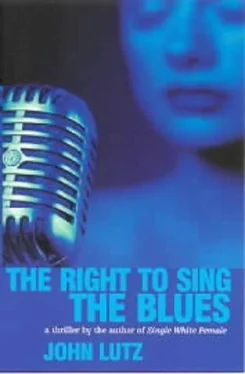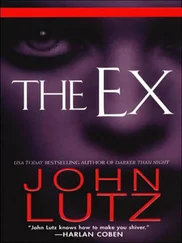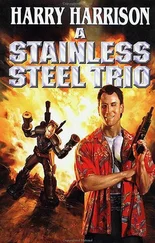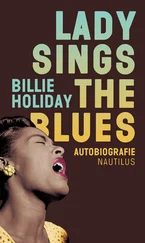John Lutz - The right to sing the blues
Здесь есть возможность читать онлайн «John Lutz - The right to sing the blues» весь текст электронной книги совершенно бесплатно (целиком полную версию без сокращений). В некоторых случаях можно слушать аудио, скачать через торрент в формате fb2 и присутствует краткое содержание. Жанр: Триллер, на английском языке. Описание произведения, (предисловие) а так же отзывы посетителей доступны на портале библиотеки ЛибКат.
- Название:The right to sing the blues
- Автор:
- Жанр:
- Год:неизвестен
- ISBN:нет данных
- Рейтинг книги:5 / 5. Голосов: 1
-
Избранное:Добавить в избранное
- Отзывы:
-
Ваша оценка:
- 100
- 1
- 2
- 3
- 4
- 5
The right to sing the blues: краткое содержание, описание и аннотация
Предлагаем к чтению аннотацию, описание, краткое содержание или предисловие (зависит от того, что написал сам автор книги «The right to sing the blues»). Если вы не нашли необходимую информацию о книге — напишите в комментариях, мы постараемся отыскать её.
The right to sing the blues — читать онлайн бесплатно полную книгу (весь текст) целиком
Ниже представлен текст книги, разбитый по страницам. Система сохранения места последней прочитанной страницы, позволяет с удобством читать онлайн бесплатно книгу «The right to sing the blues», без необходимости каждый раз заново искать на чём Вы остановились. Поставьте закладку, и сможете в любой момент перейти на страницу, на которой закончили чтение.
Интервал:
Закладка:
"A threat?"
"A threat," she confirmed. She was trembling, about to lose any semblance of control over her emotions.
"Do you want half of my omelet?" Nudger asked her.
"No! Do me a favor and choke on your goddamned omelet!"
Unwilling to break down in front of him, she stalked from the room quickly so he couldn't see the sobbing that he heard. She slammed the door so hard that the omelet quivered on its plate like something alive and neurotic.
Nudger sat in the reverberating silence for a few minutes, then pushed his plate away and poured himself a cup of coffee. Ineida and her tears and her twenty thousand dollars had ruined his appetite.
After coffee and half a piece of buttered toast, Nudger went to the bed and sat down with the phone. He dialed direct to the Third District station house in St. Louis and got Hammersmith.
"This is Nudger, Jack."
"I know," Hammersmith said, "I was warned."
Nudger made a mental note not to leave his name next time with Ellis the desk sergeant. "I need some information."
"I assume you're still in New Orleans, or you'd be here in the flesh to bring to bear the full force of your personality behind your request. What specifically do you want to know?"
"Nothing specifically," Nudger said. "I want your feeling on the Billy Weep murder."
"You mean Benjamin Harrison Jefferson?"
"You know who I mean," Nudger said.
"My feeling, huh?" Hammersmith understood what Nudger was requesting.
Nudger heard the labored wheezing sounds of Hammersmith lighting a cigar and was glad that over six hundred miles separated them. Even at that he considered glancing out the window to check wind direction.
"We found a gram of heroin hidden in Weep's apartment, Nudge," Hammersmith said.
"I thought you searched his apartment and came up with nothing."
"This was wrapped in a cut-off prophylactic and tucked down into a light socket with a bulb screwed in on top of it. Would you have found it?"
"No," Nudger said, letting Hammersmith extract his price for whatever information he was going to divulge, making a resolution not to take burned-out light bulbs for granted. They and burned-out people could surprise.
"The most likely theory is that someone knew Weep had the junk hidden in the apartment and killed him for it but didn't find it." Hammersmith couldn't quite make himself sound as if he believed that theory.
"How would they know he had it or how much it was?"
"Could be they saw him get it from his supplier and followed him home."
Nudger remembered the wasted Billy Weep slouched in his chair in the shadows. It was hard to imagine him having the strength even to go out and score for a fix. And it wasn't easy to find a supplier who delivered heroin like pizza to go. Something softer, maybe, but not heroin. "Was there evidence of heroin in his blood?" Nudger asked.
"No. There was a two-point-five alcohol reading and there were traces of THC in him. Marijuana. He was on two kinds of high when he was killed."
"Maybe not," Nudger said. "THC stays around in the body for a long time, and when I talked to him just before his death, Billy told me he wasn't drinking."
"That may or may not be true about the drinking, Nudge. The ME says his liver was about gone and he'd have probably died within six months on his own if somebody hadn't helped him across."
"How about needle tracks?" Nudger asked. "Did the ME find any on Billy's body?"
Hammersmith smacked his lips and puffed on his cigar; over the phone he sounded like a locomotive in heat. "How astute of you to ask, Nudge. No needle-entry signs, not under the tongue or between the toes or anywhere else."
"Do you know what was used to beat him to death?"
"No. It could have been a number of things. He actually died of asphyxiation."
"Asphyxiation?" Nudger repeated. "Somebody choked him?"
"Whatever was used on him hit him in the throat, crushed his larynx and windpipe cartilage, made it impossible for him to get air."
Nudger couldn't help it; he imagined for a moment how it would be, the final, horrible panic: thrashing around wildly on the floor, struggling futilely to suck in oxygen, feeling your heart sledgehammer against your ribs, your entire body about to crumple inward around its internal airless ruins. The rage. The terror.
Hammersmith surprised Nudger. "I'm sorry, Nudge. Was he a pretty good friend?"
"To a lot of music lovers," Nudger said. "You haven't answered my question, Jack."
"I know. I'm not sure how I feel about this one. Could be the obvious-old junkie followed home and killed for his stash."
"Or it could be that somebody planted the heroin to make it look that way."
"A guy that clever," Hammersmith said, "he's smart enough to buy a plane ticket south. All the way to New Orleans." Slurp, wheeze on the cigar. "You see any connection down there with Weep's death?"
"Nothing firm. Hollister maybe, but I checked him out. He didn't have a chance to leave town and get back here the night Billy was murdered. The times don't quite fit."
"My clothes don't quite fit, either," Hammersmith said, "but I wear them." Which was a lie; the obese Hammersmith had most of his clothes tailored to his sleek bulk. "Maybe Hollister found a way."
"That would be like a thirty-eight short on you," Nudger said.
Hammersmith said something that sounded like a growl.
"I'll let you know if anything down here does gel," Nudger told him.
"Do that," Hammersmith said. He made another disgusting airy slurping sound with the cigar. "In the meantime, I'll be here standing tall between the citizens and the savages."
"How do you know who's who?" Nudger asked, but a dial tone hit him in the ear. Hammersmith, who had a thing about getting in the last word on the phone, had hung up.
That was okay. He couldn't have answered Nudger's question anyway. Nobody could. That was the world's and Nudger's problem.
XXIV
Who's he working for?" Hollister asked. "I don't know. He won't say." Ineida didn't tell Hollister that she'd offered Nudger money to pull away from whatever his business was in New Orleans. Whatever his interest was in her and Willy.
They were in the Croissant Bar in the French Quarter, where they often shared breakfast in a back booth. Neither was eating today. A blueberry croissant with one small bite out of it lay growing stale on a napkin next to Hollister's steaming coffee cup. There was nothing but an untouched glass of orange juice on the table in front of Ineida. She wasn't feeling well this morning.
"It doesn't matter who he is or who he's working for," Ineida said. "We're not doing anything illegal; he can't do anything about us or to us. We can ignore him." She sounded as if she were trying to convince herself more than Hollister.
After a lot of thought, Hollister had decided on this one last attempt to learn more about Nudger. He wasn't surprised Ineida had failed to do so. But she was right; they weren't breaking any laws. No one could be arrested for what they were thinking, or for the pain to be.
Long after his mother's death, he had learned to play the blues, the music of the lost. The very core of suffering. He'd learned to draw on the emptiness brought about by his mother dying and the years that followed. He had thought a lot about pain. In school in Illinois. Later in New York. His mother had loved him, and his father had told him after her death how much she had been loved by both of them. Had told him over and over again. Willy had sensed the fear in his father, and the agony. He'd played his father's pain and it had worked; it had permeated his music in the little New York clubs he'd played, then in the blues cities of the Midwest. And when his father died, Hollister found that he could no longer draw on that pain. It didn't matter, he discovered. His own pain worked even better. So much better. But he needed a fix now and then to sustain him. Like a masochist, though he knew he wasn't that; just the opposite. Like a vampire. Just like a vampire. Hollister shuddered. He didn't like the comparison.
Читать дальшеИнтервал:
Закладка:
Похожие книги на «The right to sing the blues»
Представляем Вашему вниманию похожие книги на «The right to sing the blues» списком для выбора. Мы отобрали схожую по названию и смыслу литературу в надежде предоставить читателям больше вариантов отыскать новые, интересные, ещё непрочитанные произведения.
Обсуждение, отзывы о книге «The right to sing the blues» и просто собственные мнения читателей. Оставьте ваши комментарии, напишите, что Вы думаете о произведении, его смысле или главных героях. Укажите что конкретно понравилось, а что нет, и почему Вы так считаете.












